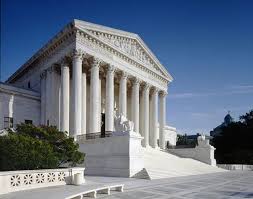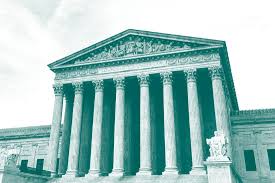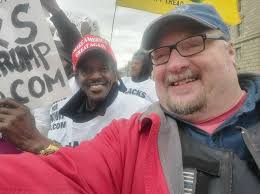Supreme Court Continues to Pare Back Criminal Laws

In a pair of rulings issued near the end of the last Term, Fischer v. United States and Snyder v. United States, the Supreme Court continued to cut back on the Justice Department’s interpretation and enforcement of criminal laws. The Supreme Court continues to display a distrust or basic misunderstanding of prosecutorial discretion (one Justice referencing during oral argument the old adage that a prosecutor can indict a “ham sandwich”). As a result, the Supreme Court has a steady record of rejecting DOJ interpretations of criminal laws as a way to curtail potential exercise of prosecutorial discretion.
Snyder v. United States: Gratuities
In the Snyder case, the Supreme Court ruled that the federal bribery law applicable to state and local officials, 18 U.S.C. §666, did not make it a crime for state and local officials to accept gratuities for acts they have already taken. Justice Kavanaugh, writing for the 6-3 majority, explained that state and local officials are already subject to state and local laws and regulations governing gifts and characterized the claimed federal law interpretation would subject 19 million state and local officials to a 10-year maximum penalty for accepting “even commonplace gratuities.”
James Snyder, the former Mayor of Portage, Indiana, was convicted and sentenced to 21 months in prison for receiving $13,000 from a truck company that had received trash contracts for over $1 million. Snyder claimed the $13,000 payment was for consulting services but federal prosecutors alleged the payment was an illegal gratuity.
Justice Kavanaugh cited several reasons for overturning DOJ’s interpretation of the statute, including: (1) the statutory text was different than that used in other parts of the criminal code that applied to federal officials who accepted gratuities; (2) Congress’ subsequent amendment to the statute cut-back on the statute reflected its intent to restrict its scope to bribery; (3) Congress did not intend to create two separate crimes in Section 666; (4) the federal illegal gratuities crime includes a punishment of up to two years, while DOJ’s interpretation for Section 666 would create a 10-year offense for the same crime involving state and local officials; (5) DOJ’s interpretation would interfere with the right of state and local governments to regulate the acceptance of gratuities by their officials; and (6) DOJ’s interpretation would not provide state and local officials clear notice in advance of the application of Section 666 to situations involving gratuities. Justice Kavanaugh rejected DOJ’s assurances that prosecutors could be trusted not to enforce the statute against small-time violators.

In dissenting, Justices Ketanji Brown, Sonia Sotomayor and Elena Kagan wrote that the plain text of the statute clearly applies to gratuities paid to state and local officials after they have acted. Justice Ketanji Brown claimed the law can only apply to those officials who “corruptly” receive gratuities for after taking various acts.
Fischer v. United States: Obstruction
In another 6-3 decision, the Supreme Court threw out a criminal charge against a January 6, 2021 rioter for obstruction of an official proceeding and ruled that the statute, 18 U.S.C. 1512(c)(2) only applies to evidence tampering, such as destruction of records or documents, in official proceedings. DOJ had used the statute, 18 U.S.C. 1512(c)(2), to apply to all forms of corrupt obstruction of an official proceeding, in this case, Congress’ certification of the electoral votes.

Section 1512(c)(2) makes it a crime to “otherwise obstruct[], influence[], or impede[] any official proceeding.” Chief Justice Roberts, writing for the majority, ruled that the narrow interpretation of 1512(c)(2) was mandated in view of the language of the preceding subparagraph in Section 1512(c)(1) which provides several specific examples of evidence tampering that the law prohibits – such as altering a record and concealing a document. When subsection (c)(2) immediately follows those examples, Chief Justice Roberts reasoned, “the most sensible inference” is that the scope of (c)(2) is limited by the examples in (c)(1). Indeed, he noted, if subsection (c)(2) swept as broadly as DOJ suggested Congress would have had no reason to enact subsection (c)(1) since (c)(2) would have subsumed (c)(1) under DOJ’s interpretation.
In a concurring opinion, Justice Ketanji Brown Jackson emphasized that the case against Fischer could go forward because he was charged with “corruptly” obstructing a proceeding before Congress, the certification of the Electoral College vote which could have involved the impairment or the availability of things used during the proceeding.
Justice Amy Coney Barrett dissented, in an opinion joined by Justices Sonia Sotomayor and Elena Kagan, and claimed that the language clearly covered all sorts of actions that may impact official proceedings. Instead she claimed that the majority “does textual backflips to find some way — any way — to narrow the reach of subsection (c)(2).”















